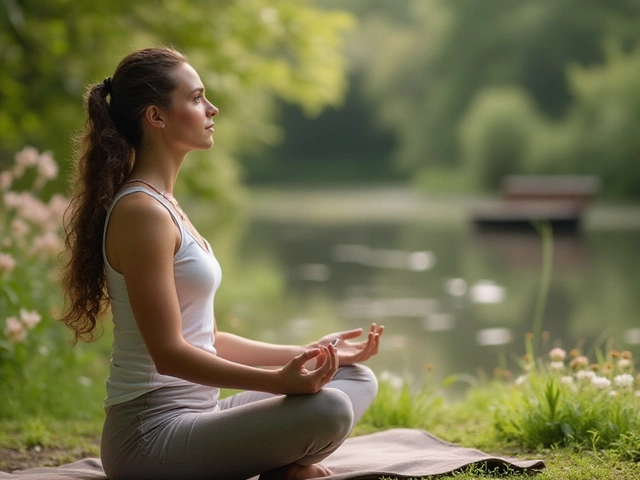
The Science of Meditation: Unraveling Its Benefits
Meditation, once considered a mystical practice reserved for monks and spiritual seekers, has now firmly rooted itself in the scientific community as a powerful tool for enhancing mental and physical health. An ever-growing body of research supports that regular meditation can significantly reduce stress, improve concentration, and promote a greater sense of well-being. Among these is a notable study published in the journal 'Psychiatry Research: Neuroimaging', which revealed that participants who engaged in a mindfulness meditation program for eight weeks experienced measurable changes in brain regions associated with memory, sense of self, empathy, and stress. The ability to transform not only our mental health but also bring about physical changes in our brain highlights meditation's profound potential.
Another area where meditation shines is in its ability to manage symptoms of anxiety and depression. The same mechanisms that help reduce stress—such as increased awareness of the present moment and a decrease in ruminative thinking—can also mitigate the heavy burden of anxiety and depression. This benefit is especially crucial in today's fast-paced world, where mental health concerns are at an all-time high. Not to mention, meditation's role in enhancing creativity and problem-solving skills offers an unexpected but welcome advantage for those looking to think outside the box.
Meditation also extends its benefits to physical health, reducing blood pressure, improving heart health, and enhancing sleep quality. The intricate connection between the mind and body means that as we calm our thoughts and reduce stress, our physical health also sees substantial improvement.
Getting Started: Practical Tips and Meditation Techniques
The prospect of beginning a meditation practice can be daunting for novices, but it doesn't have to be. The beauty of meditation lies in its simplicity and accessibility—you don't need any special equipment or a significant amount of time to start. One of the most basic techniques is focused attention meditation, which involves concentrating on a single point of reference, such as your breath, a mantra, or even a candle flame. This method trains the mind to stay present and gently redirect it when it wanders.
For those who find it challenging to quiet their mind through focused attention, mindfulness meditation offers an alternative approach. Instead of narrowing your focus, mindfulness involves observing any thoughts, feelings, or sensations that arise without judgment. This practice fosters an awareness and acceptance of the present moment, revealing insights into our habitual patterns of thinking and reacting.
Another accessible technique is guided meditation. Through the use of audio recordings or apps, a guide leads you through the meditation, often incorporating visualization, affirmations, or mindfulness instructions. This guidance can be particularly helpful for beginners uncertain about where to start or those who enjoy a structured approach to their practice.
Incorporating meditation into your daily routine might seem challenging at first, but even a few minutes a day can make a significant difference. Start with short sessions of 5-10 minutes and gradually increase as you feel more comfortable. Finding a specific time each day, whether in the morning to start your day with clarity or in the evening to unwind, can also help establish a consistent practice. Remember, the key to meditation is not to strive for perfection but to approach it with patience and self-compassion. As with any skill, it takes time and practice to reap the full benefits.
The journey into meditation is deeply personal and can transform lives in unexpected ways. Whether seeking stress relief, improved concentration, or a greater sense of peace and well-being, meditation offers a path to achieve these goals. With patience and persistence, anyone can unlock the power of meditation and discover the myriad ways it can enhance their life.





